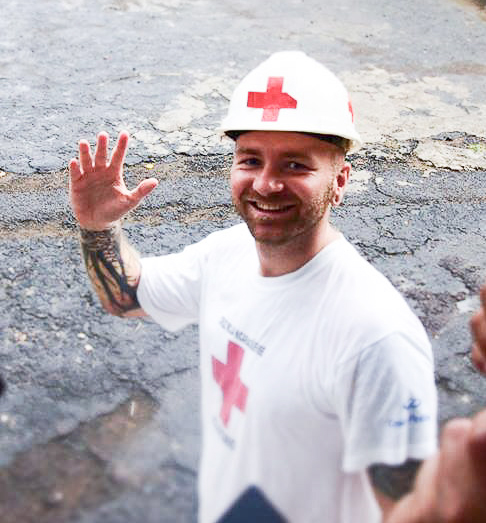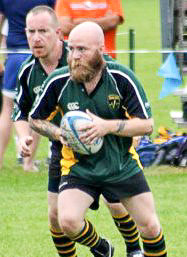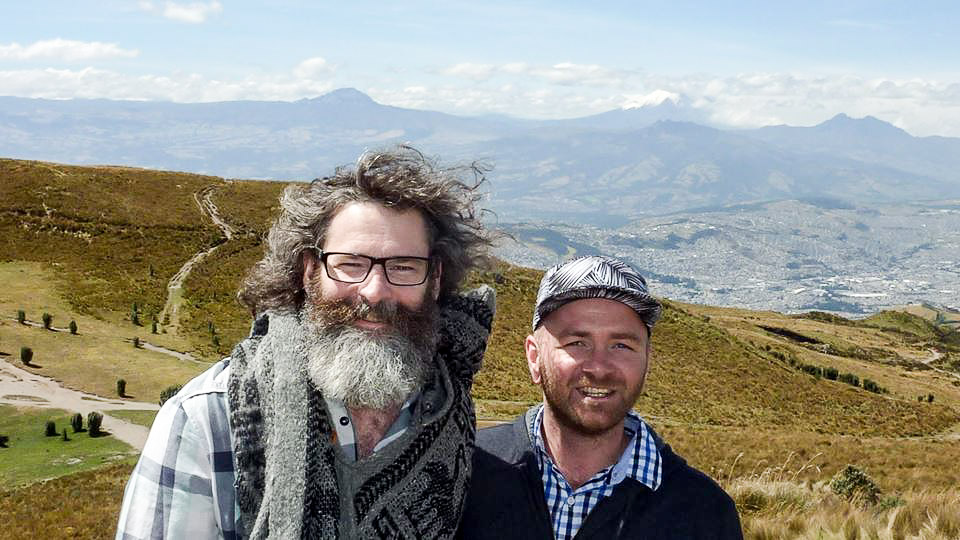Joshua Lumsden — Seattle Class 48
Joshua Lumsden is in his family practice preceptorship at the East Wenatchee Express Clinic of Columbia Valley Community Health Services. Now in his second year of physician assistant studies, Joshua is working directly in clinic for the first time.
“Yes, I love it,” he says. “It still amazes that people who are sick care what I think, and that they think I’m credible.”
But credible he is. During his didactic year in April of 2015, the MEDEX faculty awarded Joshua Lumsden the prestigious Richard Smith scholarship, named after the founder of MEDEX. Winners of this award are seen as visionaries with a commitment to increasing access to healthcare for the underserved, especially from a broad global perspective.
“Columbia Valley’s commitment towards remedying health disparities, especially with the Hispanic community, is just admirable,” he says. “It’s exactly the kind of clinic I would like to work with.“
About 65% of Joshua’s patients are Hispanic, so his Spanish language skills have been put to good use. He worked in Nicaragua and El Salvador during the summer of 2015, in part to freshen up his Spanish. The trip also provided him with the subject for his Capstone Project, due before graduation in August 2016. He explains that there’s a variant form of kidney disease, Mesoamerican nephropathy, that disproportionately affects sugarcane workers, who experience some of the worst working conditions in the world. “I interviewed nephrologists, activists and academic researchers about the struggles they encounter trying to address kidney disease in that population,” he explains. “My project focuses on the structural and political barriers these people encounter when they’re trying to address an entirely preventable epidemic.”
“These things— concepts like water, rest and shade— are completely a given here, something that you wouldn’t have to think about on a job site,” he says. But the workers in Nicaragua and El Salvador don’t always have access to these basics. “As a result, they’re dying of kidney disease at 30, 35 years old. It was depressing, walking through the hospital nephrology wards and seeing people my age, emaciated, in their dialysis beds.”
Joshua received his first master’s degree in Linguistics at Indiana University in 2003. While in school, a friend asked him to come work in a group home for developmentally disabled adults. “It was rewarding, but also I got paid to take people bowling.”

Eventually, Joshua moved to the Seattle area and took a job working with this same population for a non-profit in Issaquah. Later, he became a case manager for the State of Washington. Over ten years this contributed to over 18,000 hours of healthcare experience, well over the 4,000 hours required by MEDEX at the time of his application.
The majority of his clients not only had developmental disabilities, but also mental health issues. “The people I worked with had existing services. They had residential and vocational care.” Joshua’s job was to make sure that those services were going well, and to respond to crises that came up.
He offers up an example. An individual with disabilities might lose their residential placement due to mental health decompensation. It then became Joshua’s job to assess the situation, obtain the necessary support from mental health agencies and medical care, and work on a plan to get the patient stabilized and into new residential placement
These situations put Josh in close contact with a variety of medical providers. Although he was not qualified to make a formal diagnosis, he learned how to gather the data needed to help the professionals make appropriate diagnoses. During his time in Issaquah, Joshua met “an awesome mental health PA”.
“I really admired the way that he worked with people with disabilities,” he recalls. “He modeled respect for a person with disabilities in a way that I’d never seen.”
The physician assistant he’s referring to is Dale Sanderson PA-C, a MEDEX graduate from 1995, and currently a behavioral medicine specialist at Sound Mental Health.
“Our clients had pretty complex psychoactive medication management needs, and Dale was the contact,” Josh recalls. “He was the one that did the prescribing.”
Becoming a physician assistant really resonated for Josh. “In every job you get to a point where you’re not very challenged,” he recalls. He looked at what advancement as a case manager for the state might look like. “It meant supervising other social workers, and/or writing policy on how a group home should be run. And those are pretty important jobs.”

But Josh wanted more contact with people, and the physician assistant path appeared intellectually challenging while granting the hands-on access he needed. “In time the pull got a little too strong, and so I decided to apply.”
In 2013 Joshua applied to six PA schools around the country. After the interview at MEDEX he knew where he wanted to go. “I had seen who they produced,” he says. “The MEDEX physician assistants that I encountered working in the community were excellent.”
When he received a call from MEDEX, Josh accepted immediately, and withdrew his application from every other university he’d applied to.
The challenges of that first year at MEDEX— the didactic year— are well known, and Joshua says little to dispel the notion. “It’s just astonishing,” he says. “Just when you think that you have been stretched to the end, another quarter comes along and it’s even harder. You give up on things like exercising, and you start scheduling bathroom breaks because that much time management is required.”
Now in his clinical year at MEDEX, Joshua is working hands-on with patients under the supervision of his preceptor, Casey Wyatt PA-C, himself a graduate of MEDEX Spokane class 13. There are not as many deadlines and tests as in the didactic year, but the self-study has proven to be quite intense. “After my 12 hours in clinic, I’m spending two hours at night working on my Capstone project, studying for the PANCE certification exam, and managing other communications with MEDEX,” he says. “But still, it’s a different kind of intense. It’s more fun.”
After concluding his 4-month family medicine preceptorship at the end of January, Joshua will move on to fulfill six 1-month long specialty rotations, all to be determined by MEDEX. Next in line is general surgery at Franciscan Medical Clinic in Lakewood, WA.

We wonder if Josh has any thoughts past graduation in August 2016. What kind of medical practice does he imagine for himself? “Previously, I saw myself doing behavioral medicine,” he says. “But as I encounter more and more primary care, I think primary care is the way to go. You still get to do some behavioral medicine work here, and it relates well to the case management I did before. You can work on social issues a little bit. You get a broad base of challenges.”
Reflecting on the pace of the 2-year MEDEX program, Joshua states, “it moves really, really quickly. This is a time of great growth. I don’t know if there will be another time like this in my life, and so I’m happy.”
Appreciating his first taste of medical patient contact at East Wenatchee Express Clinic, Josh declares, “This place is a dream”.

